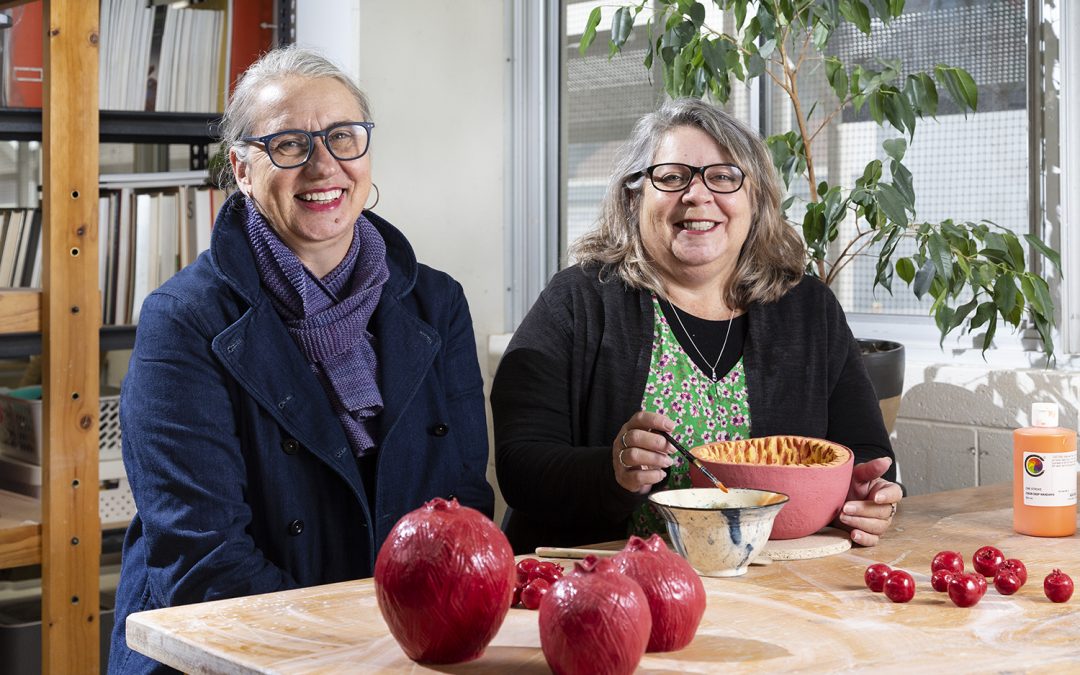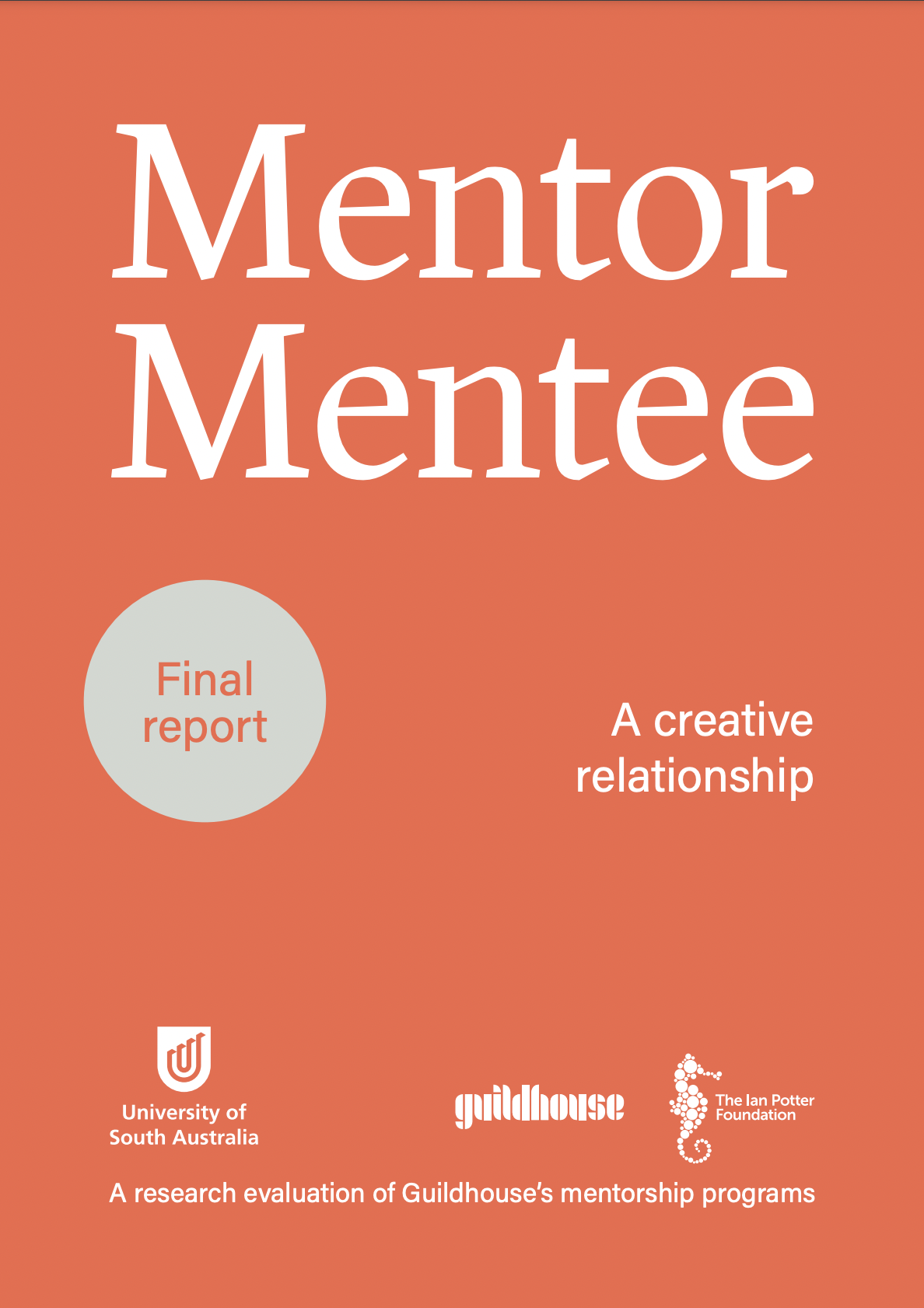Image: Catapult + Tarnanthi mentor Kirsten Coelho with mentee Christina Gollan, 2021
The results of a four-year partnered research study examining the impact of mentorships on artistic careers have been launched at the 12th International Conference on Cultural Policy Research in Antwerp, Belgium.
The longitudinal study, titled Mentor Mentee: A Creative Relationship, is a partnership between Guildhouse and the University of South Australia and is the first of its kind to examine the experiences and long-term impact of mentorships for creative mentees and mentors through an independent university-conducted research project.
Continuing the findings from an Interim Mentor Mentee Report published in 2020, both mentors and mentees in the Catapult Mentorship program overwhelmingly found the experience to be an incredibly positive one and outcomes were experienced across a range of areas:
- Over 90% of mentees and mentors rated their experience as rewarding or extremely rewarding
- Over 90% of mentees said they found the experience valuable personally and professionally
- 79% of mentees reported that they learned a new skill or technique
- Over 70% of mentees reported that they diversified their practice and felt more empowered to continue creating independently
The investment in time and effort enabled by a Catapult Mentorship was experienced by Mentees as profoundly significant in terms of the overall course of their career. Given the disruptions of the COVID-19 pandemic, the availability of the Catapult Mentorship at this time proved to be invaluable to many of the artists involved, enabling upskilling and creative connection at a time when so many other avenues of support were closed off.
In addition to presenting rich qualitive research outlining what mentors and mentees need for successful partnerships, the final report also identifies three key areas for future growth and exploration:
- An immediate need at a policy level for creative residencies to bring international mentors to Australia to enable greater numbers of locals to benefit from their expertise and time.
- The need for a more culturally appropriate and diverse model of, or approach to, mentorships.
- The value of a UBI (Universal Basic Income) for creatives, enabling more time for creation as well as professional development and practice building.
A consistent finding in the study, for both early and mid-career mentees, was the importance of the mentorship in boosting artists’ confidence. It provided a licence to take themselves seriously as professional artists or explore new skills or professional areas.
One mentee interviewed for the study said that the acknowledgment that they were on the right path was invaluable. “Often as an artist, you’re working on your own and you never really know if what you’re doing is valuable or worthwhile. To have someone from the outside to talk to, that also knows your work and knows the industry, to validate what you’re doing, is really important, just to give you the confidence to keep going” they said.
Another participant said, “Overall the most rewarding part of the program was the feeling of achievement, feeling of self-worth and a feeling of a greater confidence in what I do”.
The findings of the study were presented at the conference by Dr Susan Luckman, Professor of Cultural and Creative Industries and Director of Creative People, Products and Places (CP3) at the University of South Australia and Emma Fey, CEO of Guildhouse.
Dr Susan Luckman said, “This project, the first major research-informed longitudinal analysis of the efficacy and impact of creative mentorships, offers internationally-significant insights into what more culturally inclusive sector-support may look like, as well as a strong evidence base for the creative opportunities that could be released through a guaranteed basic income for artists.”
Emma Fey said “This is a tremendous opportunity to contribute to the international cultural policy regarding the importance of funded, artist-led mentorships for the development and sustainability of artistic practice.”
Conducted over four years, the project examined the impact of the Guildhouse Catapult Mentorship Program on artistic careers over time and provided feedback to enhance future programs for both mentors and mentees. It also valuably offers insights into the impact of COVID-19 on creative careers (as compared with pre-pandemic), with the research data collection covering three iterations of the same program from 2019-2022.
The Guildhouse Catapult Mentorship Program provides South Australian artists with the critical funding and support they need to develop their artistic practice by engaging in an artist-led mentorship with established practitioners from all over Australia and beyond. The program is generously supported by The Ian Potter Foundation, the Guildhouse Creative Champions donor program, and Country Arts SA.


